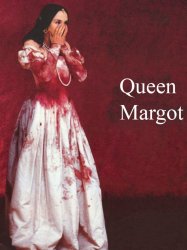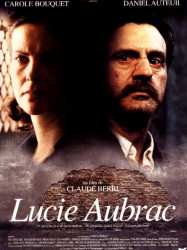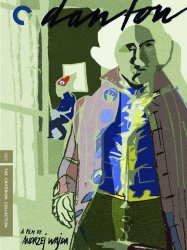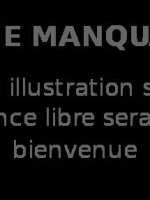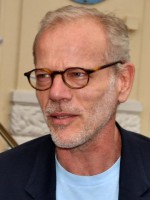Patrice Chéreau is a Actor, Director, Scriptwriter and Producer French born on 2 november 1944 at Lézigné (France)
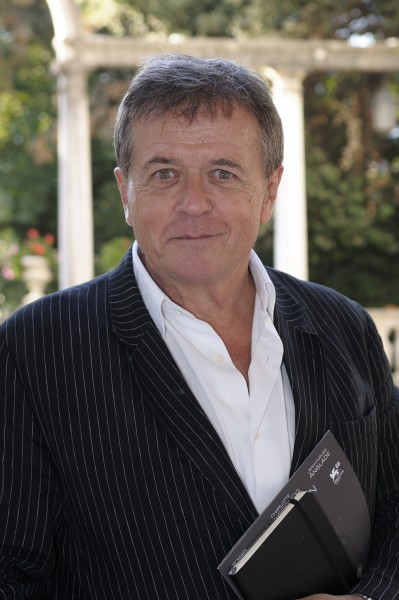
Patrice Chéreau ([pa.tʁis ʃe.ʁo]; 2 November 1944 – 7 October 2013) was a French opera and theatre director, filmmaker, actor and producer. In France he is best known for his work for the theatre, internationally for his films La Reine Margot and Intimacy, and for his staging of the Jahrhundertring, the centenary Ring Cycle at the Bayreuth Festival in 1976. Winner of almost twenty movie awards, including the Cannes Jury Prize and the Golden Berlin Bear, Chéreau served as president of the jury at the 2003 Cannes festival.
From 1966, he was artistic director of the Public-Theatre in the Parisian suburb of Sartrouville, where in his team were stage designer Richard Peduzzi, costume designer Jacques Schmidt and lighting designer André Diot, with whom he collaborated in many later productions. From 1982, he was director of "his own stage" at the Théâtre Nanterre-Amandiers at Nanterre where he staged plays by Jean Racine, Marivaux and Shakespeare as well as works by Jean Genet, Heiner Müller and Bernard-Marie Koltès.
He accepted selected opera productions, such as: the first performance of the three-act version of Alban Berg's Lulu, completed by Friedrich Cerha, at the Paris Opera in 1979; Berg's Wozzeck at the Staatsoper Berlin in 1994; Wagner's Tristan und Isolde at La Scala in 2007; Janáček's From the House of the Dead, shown at several festivals and the Metropolitan Opera; and, as his last staging, Elektra by Richard Strauss, first performed at the Aix-en-Provence Festival in July 2013. He was awarded the Europe Theatre Prize in 2008.
With "idealism and inventiveness", he made the theatre a "municipal commodity", presenting not only theatre but also "cinema, concerts, poetry productions, lectures and debates about everything from politics to pot". His theatrical team included costume designer Jacques Schmidt, stage designer Richard Peduzzi and lighting designer André Diot, with whom he collaborated in many later productions.
In 1968 he directed The Soldiers by Jakob Michael Reinhold Lenz at the Festival of Youth Theatre in Nancy. In 1969 he staged his first opera production, Rossini's L'italiana in Algeri for the Spoleto Festival, again with his Sartrouville team. The following year he established a close artistic relationship with the leadership of the Piccolo Teatro in Milan, Paolo Grassi and Giorgio Strehler. There he staged Pablo Neruda's "revolutionary oratorio" The Splendour and Death of Joaquin Murieta. He often collaborated with Claude Stratz. In 1970 he directed Shakespeare's Richard II at the Théâtre de France. His first staging for the Paris Opera was in 1974 Offenbach's Les contes d'Hoffmann. He showed Hoffmann, sung by Nicolai Gedda as a "sensitive poet for whom love is beyond reach, ... a drunken loser". In 1975 he worked in Germany for the first time directing Edward Bond's Lear, set in an "industrial landscape strewn with piles of slag, with Lear as a Baron Krupp in evening dress and top hat". He commented on the "macabre" production: "Just as some people feed on hope, I feed on despair. For me it is a spur to action." Also in 1975, his directorial debut film was the thriller La Chair de l'orchidée, based on James Hadley Chase's 1948 novel The Flesh of the Orchid, sequel to No Orchids for Miss Blandish (1939). The film assembled a starry cast including Edwige Feuillère, Simone Signoret, Alida Valli and Charlotte Rampling "in the [Miss Blandish] role giving a performance of extraordinary intensity. It was an almost operatic version of the misunderstood 1948 British film."
Bayreuth
In 1976 he staged Wagner's Der Ring des Nibelungen at the Bayreuth Festival to celebrate the festival's centenary, termed the Jahrhundertring. The production, celebrating 100 years after Wagner's work had been performed for the first time as a cycle at the first Bayreuth Festival, became known as the Jahrhundertring (Centenary Ring). Chéreau collaborated with conductor Pierre Boulez, who had recommended him to the festival direction. The French team revolutionised the understanding of Wagner in Germany, as music critic Eleonore Büning wrote in her obituary in the Frankfurter Allgemeine Zeitung. Chéreau set the scene in the time of the composition, with a critical view of the time's capitalism, industrialism and spiritual background. The staging left a standard for productions of the Ring Cycle to follow.
He directed the first performance of the three-act version of Alban Berg's Lulu, completed by Friedrich Cerha, at the Paris Opera on 24 February 1979, again conducted by Boulez and with sets by Peduzzi, with Teresa Stratas singing the title role.
The Ring production, filmed for television in 1980, was initially met with controversial reactions but was celebrated after its final performance in 1980 in a 45-minute standing ovation. Chéreau disliked grand opera, but said: "After Bayreuth, I felt the need to work on a theatrical project of some breadth ... I have never put on little things. I am interested only in spectacles that rise above themselves". He first considered Goethe's Faust but then directed in 1981 Henrik Ibsen's Peer Gynt for Villeurbane and Paris, aiming at "an incandescence of theatrical experience, a global spectacle".
Amandiers
From 1982 Chéreau was director of "his own stage" at the Théâtre Nanterre-Amandiers at Nanterre. He staged there several plays by Bernard-Marie Koltès, as well as works by Jean Genet, Pierre de Marivaux, Heiner Müller, Jean Racine and Shakespeare.
In 1983 he directed the film The Wounded Man (L'Homme Blessé), a more personal project for him. He and his co-writer, Hervé Guibert, worked for six years on the scenario, which tells of a love affair between an older man involved in prostitution and a teenage boy, a dark view in the context of HIV/AIDS. His 1994 film was La Reine Margot, based on the 1845 historical novel of the same name by Alexandre Dumas. It won the Jury Prize and Best Actress Award (Virna Lisi) at Cannes, as well as five César Awards. Set in the 16th-century between Catholics and Protestants in France, it shows battles and the St Bartholomew's day massacre, Chéreau's longest, most expensive and his greatest financial success. "[I]t was erotic and violent, and offers poured in from Hollywood," but, he said, "I was always being offered films based in the Renaissance and involving a massacre. I even had an offer from the UK to do a film about Guy Fawkes." He refused similar offers: "It's useless to repeat something you already did."
His staging of Berg's Wozzeck, conducted by Daniel Barenboim, was filmed at the Staatsoper Berlin in 1994, with Franz Grundheber (de) in the title role and Waltraud Meier as Marie. A review notes the "presentation of even the smallest roles as deeply-considered characters".
In 1998 he directed the film Those Who Love Me Can Take the Train, a "melodramatic, sentimental and emptily wordy ... about the interplay of assorted characters on their way to the funeral of a misanthropic, bisexual minor painter (Jean-Louis Trintignant)."
Chéreau's only English-language film, Intimacy (2001), based on short stories by Hanif Kureishi (who also wrote a novel of the same title in 1998), was played by English actors, including Timothy Spall and Marianne Faithfull, and deals with "the possessiveness of a musician from London who regularly meets a woman for sexual encounters". It "was a tale of sexual obsession which sparked a debate about unsimulated sex on screen. But, Chéreau said, 'It is not like a porno film, not at all erotic sometimes, but it is beautiful because it is life.'" In 2003 he directed His Brother (Son frère), centred "on the relationship between two estranged brothers, one gay, the other straight. They come together when the latter suffers from a potentially fatal blood disease. The hospital processes are shot unflinchingly, without sentimentality, which makes this meditation on mortality even more moving." That year he served at Cannes as president of the jury.
In 2007 he staged Wagner's Tristan und Isolde at La Scala, conducted by Daniel Barenboim. He had stayed away from the opera because he regarded it as "predominantly a musical rather than a theatrical work", but his "sombre, subtle direction – with Waltraud Meier an acutely vulnerable Isolde – was intensely moving".
He directed Leoš Janáček's From the House of the Dead, again conducted by Boulez, first shown at the Vienna Festival in 2007, later also at the Holland Festival, the Aix-en-Provence Festival, the Metropolitan Opera (his debut there in 2009) and La Scala. Chéreau's last film was Persécution (2009), "a gloomy, episodic film" about a man who is "haunted by a love-hate relationship with his girlfriend". His last production was Elektra by Richard Strauss, conducted by Esa-Pekka Salonen, shown at the Aix-en-Provence Festival in July 2013 and scheduled for the MET's 2015–16 season. A review noted: "The clichés of Fascist brutality and expressionist exaggeration are astutely avoided: this is a situation that involves human beings, not caricatures, in a visually neutral environment of bare walls, windows and doors (designed by Richard Peduzzi) which is also blackly portentous in atmosphere."
Chéreau was in a long-term relationship with his lover and favorite actor Pascal Greggory. He was not interested in gay topics, saying: "I never wanted to specialise in gay stories, and gay newspapers have criticised me for that. Everywhere love stories are exactly the same. The game of desire, and how you live with desire, are the same."
Chéreau died in Paris on 7 October 2013 from lung cancer. He was 68 years old.
Source : Wikidata
Patrice Chéreau

- Infos
- Photos
- Best films
- Family
- Characters
- Awards
Nationality France
Birth 2 november 1944 at Lézigné (France)
Death 7 october 2013 (at 68 years) at Paris (France)
Birth 2 november 1944 at Lézigné (France)
Death 7 october 2013 (at 68 years) at Paris (France)
Patrice Chéreau ([pa.tʁis ʃe.ʁo]; 2 November 1944 – 7 October 2013) was a French opera and theatre director, filmmaker, actor and producer. In France he is best known for his work for the theatre, internationally for his films La Reine Margot and Intimacy, and for his staging of the Jahrhundertring, the centenary Ring Cycle at the Bayreuth Festival in 1976. Winner of almost twenty movie awards, including the Cannes Jury Prize and the Golden Berlin Bear, Chéreau served as president of the jury at the 2003 Cannes festival.
From 1966, he was artistic director of the Public-Theatre in the Parisian suburb of Sartrouville, where in his team were stage designer Richard Peduzzi, costume designer Jacques Schmidt and lighting designer André Diot, with whom he collaborated in many later productions. From 1982, he was director of "his own stage" at the Théâtre Nanterre-Amandiers at Nanterre where he staged plays by Jean Racine, Marivaux and Shakespeare as well as works by Jean Genet, Heiner Müller and Bernard-Marie Koltès.
He accepted selected opera productions, such as: the first performance of the three-act version of Alban Berg's Lulu, completed by Friedrich Cerha, at the Paris Opera in 1979; Berg's Wozzeck at the Staatsoper Berlin in 1994; Wagner's Tristan und Isolde at La Scala in 2007; Janáček's From the House of the Dead, shown at several festivals and the Metropolitan Opera; and, as his last staging, Elektra by Richard Strauss, first performed at the Aix-en-Provence Festival in July 2013. He was awarded the Europe Theatre Prize in 2008.
Biography
Chéreau was born in Lézigné, Maine-et-Loire. His father Jean-Baptiste Chéreau was a painter, his mother Marguerite Pelicier a graphic designer. He attended school in Paris. Early on he was taken to the Louvre and was interested in the arts, cinema, theatre and music. At age 12 he designed stage sets for plays. He became well-known to Parisian critics as director, actor, and stage manager of his high-school theatre (lycée Louis-le-Grand). At 15, he was enthusiastically celebrated as a theatre prodigy. In 1964, at the age of 19, he began directing for the professional theatre. While studying at the Sorbonne, he professionally staged Victor Hugo's L'Intervention, and subsequently dropped out of the university. In 1966 he was appointed artistic director of the Public-Theatre in the Parisian suburb of Sartrouville.With "idealism and inventiveness", he made the theatre a "municipal commodity", presenting not only theatre but also "cinema, concerts, poetry productions, lectures and debates about everything from politics to pot". His theatrical team included costume designer Jacques Schmidt, stage designer Richard Peduzzi and lighting designer André Diot, with whom he collaborated in many later productions.
In 1968 he directed The Soldiers by Jakob Michael Reinhold Lenz at the Festival of Youth Theatre in Nancy. In 1969 he staged his first opera production, Rossini's L'italiana in Algeri for the Spoleto Festival, again with his Sartrouville team. The following year he established a close artistic relationship with the leadership of the Piccolo Teatro in Milan, Paolo Grassi and Giorgio Strehler. There he staged Pablo Neruda's "revolutionary oratorio" The Splendour and Death of Joaquin Murieta. He often collaborated with Claude Stratz. In 1970 he directed Shakespeare's Richard II at the Théâtre de France. His first staging for the Paris Opera was in 1974 Offenbach's Les contes d'Hoffmann. He showed Hoffmann, sung by Nicolai Gedda as a "sensitive poet for whom love is beyond reach, ... a drunken loser". In 1975 he worked in Germany for the first time directing Edward Bond's Lear, set in an "industrial landscape strewn with piles of slag, with Lear as a Baron Krupp in evening dress and top hat". He commented on the "macabre" production: "Just as some people feed on hope, I feed on despair. For me it is a spur to action." Also in 1975, his directorial debut film was the thriller La Chair de l'orchidée, based on James Hadley Chase's 1948 novel The Flesh of the Orchid, sequel to No Orchids for Miss Blandish (1939). The film assembled a starry cast including Edwige Feuillère, Simone Signoret, Alida Valli and Charlotte Rampling "in the [Miss Blandish] role giving a performance of extraordinary intensity. It was an almost operatic version of the misunderstood 1948 British film."
Bayreuth
In 1976 he staged Wagner's Der Ring des Nibelungen at the Bayreuth Festival to celebrate the festival's centenary, termed the Jahrhundertring. The production, celebrating 100 years after Wagner's work had been performed for the first time as a cycle at the first Bayreuth Festival, became known as the Jahrhundertring (Centenary Ring). Chéreau collaborated with conductor Pierre Boulez, who had recommended him to the festival direction. The French team revolutionised the understanding of Wagner in Germany, as music critic Eleonore Büning wrote in her obituary in the Frankfurter Allgemeine Zeitung. Chéreau set the scene in the time of the composition, with a critical view of the time's capitalism, industrialism and spiritual background. The staging left a standard for productions of the Ring Cycle to follow.
He directed the first performance of the three-act version of Alban Berg's Lulu, completed by Friedrich Cerha, at the Paris Opera on 24 February 1979, again conducted by Boulez and with sets by Peduzzi, with Teresa Stratas singing the title role.
The Ring production, filmed for television in 1980, was initially met with controversial reactions but was celebrated after its final performance in 1980 in a 45-minute standing ovation. Chéreau disliked grand opera, but said: "After Bayreuth, I felt the need to work on a theatrical project of some breadth ... I have never put on little things. I am interested only in spectacles that rise above themselves". He first considered Goethe's Faust but then directed in 1981 Henrik Ibsen's Peer Gynt for Villeurbane and Paris, aiming at "an incandescence of theatrical experience, a global spectacle".
Amandiers
From 1982 Chéreau was director of "his own stage" at the Théâtre Nanterre-Amandiers at Nanterre. He staged there several plays by Bernard-Marie Koltès, as well as works by Jean Genet, Pierre de Marivaux, Heiner Müller, Jean Racine and Shakespeare.
In 1983 he directed the film The Wounded Man (L'Homme Blessé), a more personal project for him. He and his co-writer, Hervé Guibert, worked for six years on the scenario, which tells of a love affair between an older man involved in prostitution and a teenage boy, a dark view in the context of HIV/AIDS. His 1994 film was La Reine Margot, based on the 1845 historical novel of the same name by Alexandre Dumas. It won the Jury Prize and Best Actress Award (Virna Lisi) at Cannes, as well as five César Awards. Set in the 16th-century between Catholics and Protestants in France, it shows battles and the St Bartholomew's day massacre, Chéreau's longest, most expensive and his greatest financial success. "[I]t was erotic and violent, and offers poured in from Hollywood," but, he said, "I was always being offered films based in the Renaissance and involving a massacre. I even had an offer from the UK to do a film about Guy Fawkes." He refused similar offers: "It's useless to repeat something you already did."
His staging of Berg's Wozzeck, conducted by Daniel Barenboim, was filmed at the Staatsoper Berlin in 1994, with Franz Grundheber (de) in the title role and Waltraud Meier as Marie. A review notes the "presentation of even the smallest roles as deeply-considered characters".
In 1998 he directed the film Those Who Love Me Can Take the Train, a "melodramatic, sentimental and emptily wordy ... about the interplay of assorted characters on their way to the funeral of a misanthropic, bisexual minor painter (Jean-Louis Trintignant)."
Chéreau's only English-language film, Intimacy (2001), based on short stories by Hanif Kureishi (who also wrote a novel of the same title in 1998), was played by English actors, including Timothy Spall and Marianne Faithfull, and deals with "the possessiveness of a musician from London who regularly meets a woman for sexual encounters". It "was a tale of sexual obsession which sparked a debate about unsimulated sex on screen. But, Chéreau said, 'It is not like a porno film, not at all erotic sometimes, but it is beautiful because it is life.'" In 2003 he directed His Brother (Son frère), centred "on the relationship between two estranged brothers, one gay, the other straight. They come together when the latter suffers from a potentially fatal blood disease. The hospital processes are shot unflinchingly, without sentimentality, which makes this meditation on mortality even more moving." That year he served at Cannes as president of the jury.
In 2007 he staged Wagner's Tristan und Isolde at La Scala, conducted by Daniel Barenboim. He had stayed away from the opera because he regarded it as "predominantly a musical rather than a theatrical work", but his "sombre, subtle direction – with Waltraud Meier an acutely vulnerable Isolde – was intensely moving".
He directed Leoš Janáček's From the House of the Dead, again conducted by Boulez, first shown at the Vienna Festival in 2007, later also at the Holland Festival, the Aix-en-Provence Festival, the Metropolitan Opera (his debut there in 2009) and La Scala. Chéreau's last film was Persécution (2009), "a gloomy, episodic film" about a man who is "haunted by a love-hate relationship with his girlfriend". His last production was Elektra by Richard Strauss, conducted by Esa-Pekka Salonen, shown at the Aix-en-Provence Festival in July 2013 and scheduled for the MET's 2015–16 season. A review noted: "The clichés of Fascist brutality and expressionist exaggeration are astutely avoided: this is a situation that involves human beings, not caricatures, in a visually neutral environment of bare walls, windows and doors (designed by Richard Peduzzi) which is also blackly portentous in atmosphere."
Chéreau was in a long-term relationship with his lover and favorite actor Pascal Greggory. He was not interested in gay topics, saying: "I never wanted to specialise in gay stories, and gay newspapers have criticised me for that. Everywhere love stories are exactly the same. The game of desire, and how you live with desire, are the same."
Chéreau died in Paris on 7 October 2013 from lung cancer. He was 68 years old.
Best films
Usually with
Filmography of Patrice Chéreau (18 films)
| Year | Name | Job | Roles |
|---|---|---|---|
| 2009 | Persecution | Director, Scriptwriter | |
| 2005 | Gabrielle | Director, Scriptwriter, Producer | |
| 2003 | His Brother | Director, | |
| 2003 | Time of the Wolf | Actor | Thomas Brandt |
| 2002 | Nearest to Heaven | Actor | Pierre |
| 2001 | Intimacy | Director, Scriptwriter | |
| 1999 | Time Regained | Actor | Voice of Marcel Proust |
| 1998 | Those Who Love Me Can Take the Train | Director, | |
| 1997 | Lucie Aubrac | Actor | Jean Moulin |
| 1994 | Queen Margot | Director, Adaptation | |
| 1992 | The Last of the Mohicans | Actor | General Montcalm |
| 1991 | Against Oblivion | Director | |
| 1987 | Hôtel de France | Director, Scriptwriter | |
| 1985 | Goodbye, Bonaparte | Actor | Napoléon Bonaparte |
| 1983 | Danton | Actor | Camille Desmoulins |
| 1983 | The Wounded Man | Director, Scriptwriter | |
| 1978 | Judith Therpauve | Director, | |
| 1975 | Flesh of the Orchid | Director, |
 Connection
Connection
